The Gazette’s latest roundtable looks at the future of claimant personal injury.
The Gazette roundtable on the future of claimant personal injury brought together lawyers from firms of all sizes who, not withstanding the enormous challenges the claimant sector faces, believe they are in a position to plan strategically for their practices.
They do so against some challenging headwinds.
PI firms are reeling from a multi-pronged assault on their business base, following legislation that has slashed success fees, banned referral fees and stopped the recovery of insurance premiums.
There are also fears that the small-claims court limit for PI cases is soon to be raised from £1,000 to £5,000, effectively excluding lawyers from what for many of them has been their core business, because only limited fees are available in the small-claims court process.
The legislation that has had such a seismic effect on the PI sector was of course the Legal Aid, Sentencing and Punishment of Offenders Act, which came into force on 1 April and incorporated reforms to civil litigation funding and costs proposed by Lord Justice Jackson.
The reforms, aimed at reducing the cost of litigation, have had a devastating impact on the PI market and the incomes of lawyers working within it.
Under LASPO, firms that used to rely on 100% success fees to compensate for cases lost under ‘no win, no fee’ arrangements – or conditional fee agreements – have seen them capped at 25% of damages. This has made most such arrangements too risky to take on, and has led to a sudden drop in the number of cases which are financially viable to handle.
LASPO’s ban on referral fees, moreover, has closed an important supply channel for new work, namely claims management companies. Because they are no longer paid fees, many CMCs have ceased trading and the new cases they provided the profession have dried up.
After-the-event insurance, a policy taken out after a dispute has arisen to protect against the risk of having to pay the opponent’s legal costs if you lose, is still permitted under LASPO. However, the cost of the premium is no longer recoverable, which again cuts firms’ profit margins.
The assault has transformed a once-thriving sector into one where, as reported week after week in the Gazette, smaller firms are ceasing to trade and larger firms are shrinking their PI teams, in both instances leading to redundancies.
It is not only the profession that is suffering. Consumers are also victims, particularly those who would formerly have relied on ‘no win, no fee’ arrangements to fund their claims. Where now can they find access to justice?
The PI sector is undoubtedly in crisis, but is it terminal?
Reading firm Boyes Turner PI associate Julie Carlisle, starts the discussion, noting that following the cap on success fees, firms are having to ‘turn down’ cases where the chances of success are even as high as 50/50. She says: ‘The whole purpose of conditional fee agreements and success fees was to enable firms to take a chance on the riskier cases, in the expectation that success fees on other cases would help to cover the costs.’
That no longer applies, she adds, and firms are now less willing to take on cases where they cannot be confident of the outcome, even though they ‘think the injuries warrant investigation and financial investment’. Inevitably, Carlisle concludes, this affects claimants’ access to justice.
David Edwards, managing partner of Cheshire PI firm Edwards Hoyle, says that a ‘fundamental failing’ of the Jackson reforms was their assumption that the complexity of a claim is always mirrored in the amount of damages awarded. ‘Jackson and the judiciary’ believe, he argues, that an employer liability or public liability case worth just £3,000, for instance, can be handled by ‘some cheap and cheerful paralegal support’.

A small claim could be as complex as an accident that had caused a £50,000 injury
David Edwards, Edwards Hoyle
‘But such a small claim could be as complex as an accident that had caused a £50,000 injury. He [Jackson] just refuses to accept that there is the same complexity at all levels of PI case. It’s just the injuries that are different.’ He went on to give the example of an early case that Jackson heard on becoming a Court of Appeal judge concerning the suitability or otherwise of a particular glove for picking up garden rubbish. ‘Damages were agreed within the fast-track limit of around £6,000-£7,000, but the case – about a glove – merited 12 pages of judgment.’
Law Society head of law reform Robert Khan asks whether, following the Jackson reforms, ‘practitioners are seeing fewer cases now than they did a year ago’.
‘Not yet,’ according to Carlisle, ‘but if the small- claims limit goes up, then a massive proportion of cases will simply fall away.’
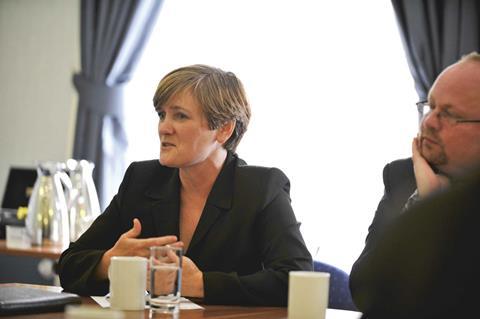
If the small- claims limit goes up, then a massive proportion of cases will simply fall away
Julie Carlisle, Boyes Turner
Surrey and Manchester firm Colemans CTTS operational partner Fiona Fitzgerald says: ‘We’re on the edge of the precipice because we’ve got the potential for the small-claims limit to go up [and for the volume of claims go down]. That, effectively, means that many PI firms are going to have to shut their doors unless they completely alter how they handle claims.
‘We have suddenly been landed with a change that came in quicker than anyone anticipated and was much deeper that anyone anticipated as well. Only the legal services industry could be in a situation where the government was allowed to have such a catastrophic impact on its business in a such a very short time.’
David Johnstone, managing director of Leeds company Recovery First, a business that aims to provide a ‘structured exit from the PI industry’ for those firms wishing to leave it, notes that changes imposed on the profession are catastrophic and unprecedented. ‘If they now change the small-claims limit, the vast majority of firms will close their doors, stop being regulated, and not pay for professional indemnity insurance. And yet they will still service claimants and take a contingency fee.’
However, Johnston adds that any raising of the small-claims limit is only part of the picture because claims are already reduced. ‘In a time of recession, there’s less employment,’ he says. ‘Employer liability claims are 30% down. Because of fuel prices, there are less road miles and so road traffic accidents are 20% down, too.’
Simon Allen, UK head of PI at Slater & Gordon, takes a contrary view. ‘Sorry,’ he says, ‘I don’t share the anxiety over the small-claims lawyer being, in Fiona’s analogy, on the edge of the precipice. Isn’t it the Jackson philosophy that the client starts to make a contribution to the cost of their legal service in some form or other? So if the small-claims limit goes up to £5,000 then the mechanism is that the client pays a proportion of their damages.
‘Firms have to decide whether they adopt what Jackson and the government want, which is an industrialised approach to lower-value claims, as they perceive them. The challenge for firms that are to do well is to provide generalised excellence rather than generalised mediocrity. The temptation with industrialisation is always to swing towards mediocrity. I think that firms that create generalised excellence will continue to do the work profitably.’
Edwards, while broadly agreeing with Allen, is concerned about the ‘quality of advice’ that claimants in future might receive from an ‘industrialised approach’ to legal services. ‘We’re commoditising,’ he said, ‘and the bigger firms are going to be the equivalent of budget airlines, constrained by how many times, for instance, they can touch a file and its whole handling process. Rumours abound about certain firms which can only touch a file five times. Access to justice will be there, but there must be concerns about the quality of advice.’
Johnstone anticipates a ‘consolidation of the market’ in England and Wales, as already seen in Scotland where ‘eight firms control 80% of PI work’. He predicts: ‘Once the catastrophic changes (of LASPO) are overcome in the next two or three years, you will be left with brands that are driven by customer service and not by anything else.’
The discussion moves on to building a sustainable PI business in the present economic climate.
Allen argues that, despite Jackson’s opinion to the contrary, PI is a complicated area even at a low level and specialisation is the key to any successful new business model. ‘You can’t dabble in PI like firms could previously,’ he says. ‘You can’t do a bit of clinical negligence, a bit of mesothelioma and a bit of employers’ liability law. You should specialise in one or the other. Or you should really be thinking about selling up your PI work and getting out.’
London firm Anthony Gold managing partner David Marshall goes further. ‘The IT phrase “Get big, get niche or get out” is absolutely key to the sustainable PI business model,’ he says. ‘You’ve got to be really big and in an arrangement with someone who can supply the work for you to do. Or there could be a role for you as a niche practice. Or you could simply get out.’
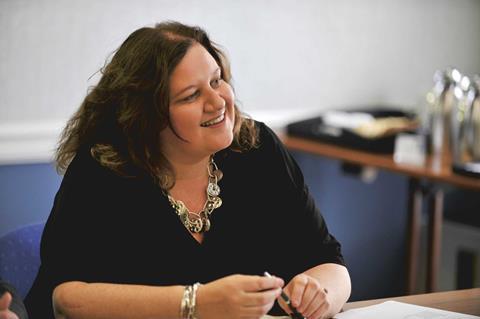
Only the legal services industry could be in a situation where the government was allowed to have such a catastrophic impact on its business in a such a very short time
Fiona Fitzgerald, Colemans CTTS
The key to a successful business model is customer service, Fitzgerald notes: ‘All that the vast majority of clients want, and we do a lot of satisfaction questionnaires, is a quick service and quick return. Customer service is not spending a year trying to get £200 more for a client or, even worse, six months getting £200 less.’
According to Edwards, although the sector is weathering huge problems, practitioners at least now know the worst and can set about building new business models. ‘We’re in a position where, like it or not, we know the level of legal fees coming in and so the focus has to be on administration,’ he says. ‘It has to be on what we can control and the key issue is going to be acquisition costs. It is going to be how does a solicitor end up with a particular client. Buying turnover is not sustainable.’
Controlling costs, Fitzgerald agrees, is central. Some firms had already taken the ‘brave’ decision to get out of the PI market, she observes, while others were ‘sticking it out because they don’t know what else to do.’ Others were moving into new markets, like serious PI or clinical negligence, ‘to try and make it work’.
But the key, she repeats, remains costs control: ‘There are so many firms out there, and the banks will tell you this, that have massive borrowing. They’ve got funding problems with disbursements that are going to go on for three, maybe five years. They don’t even know the extent of it.’
‘There are firms that don’t even realise what their loss of profitability is,’ Allen warns. ‘I feel that in some elements of the PI claimant world there’s a sort of “Oh God, why did they have to change it?” attitude. So they’re huddling together, hoping that the storm is going to pass. But the storm isn’t going to pass.’ He adds that most small firms with just one or two people handling PI, or with PI ‘scattered among a civil litigation caseload’, had no real idea of the profitability of PI.
That must change, Allen argues, proposing what he views as a sustainable model for PI. ‘Clean and effective processing by work-type carried out by well-trained staff with a controlled costs base. But what that model depends upon, and what you can influence, is the supply of work. If you’re a small practice waiting for work to come off the streets or you’ve got to buy it, then you don’t control it. You have to build a sure supply of work into the process and then you have your well-trained team in a cost-effective environment processing the claims in an industrialised, efficient and profitable way.’
Fitzgerald also shares her vision of a sustainable PI business model with the group: ‘Our firm’s strategy is to create an outsourcing model. In effect, our emphasis is to use streamlined processes and innovative structures to run volume work at a cheaper cost than most companies could do for themselves.’
The discussion then turns to the consistency of judgments in PI cases.
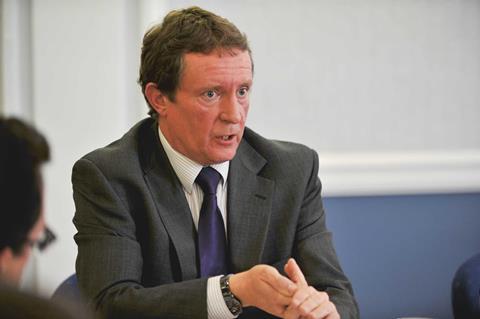
The vast majority of firms will close their doors, stop being regulated, and not pay for professional indemnity insurance
David Johnstone, Recovery First
Allen leads the debate on this subject, saying that as margins become tighter, practitioners cannot afford ‘inconsistency and inefficiency in the judicial process’. He says: ‘We have the paradoxical position where PI lawyers are becoming more specialised, with specialisms within specialisms, and yet the judiciary is becoming more generalised.’
He calls for a ‘defined PI judiciary at all levels’ so that someone who had minimal experience in the field was no longer dictating how a case is managed.
Fitzgerald instances cases where inexperienced judges gave ‘Rolls-Royce directions’ that were disproportionate to the fixed fee that practitioners could expect.
Finally, attendees turn to the future of lawyers entering PI – assuming there will be any.
Fitzgerald begins the debate by asking for ‘a definition of what a lawyer is, because I don’t think many solicitors will be going into PI anymore’. She adds: ‘The future for solicitors in PI will be limited to set tasks on key cases, like risk assessments, and to specialised areas such as serious injuries. Solicitors will not be working on fixed-fee cases because they can get a younger paralegal to do the same job for a lot less money.’
Carlisle agrees: ‘The role of the solicitor will be to manage that team of paralegals.’
Such a scenario, Marshall predicts, will lead to a ‘flatter’ structure in law firms, without the progression that has been the norm for a long time. He says: ‘That’s not going to be good news for people who’ve borrowed money to go through (university and law school) to try and qualify. There are paralegals like them in factories with very few prospects, quite frankly.’

We have the paradoxical position where PI lawyers are becoming more specialised, with specialisms within specialisms, and yet the judiciary is becoming more generalised
Simon Allen, Slater & Gordon
Carlisle fears Marshall is right. ‘Speaking to students who are at university now, it’s clear they have no idea of what is happening. The message isn’t getting through. They’re still expecting to be able to enter a profession that they have read about.
‘It’s not even just PI,’ Marshall adds. ‘It’s wider, leading into commercial areas, too.’
Edwards points to Co-op Legal Services and its training of legal apprentices as an indication of where the profession is headed. He said: ‘(The Co-op) isn’t getting qualified solicitors and paying them £27,000 on qualification. It is getting people who can deal with the portal and making sure they are trained for how the Co-op runs its business. You will still get people who rise to the top, people who go on to become qualified solicitors, but, by and large, it’s just getting the right people suited to the job in hand.’
Allen is in favour of apprenticeships. ‘An apprenticeship may be a better way forward,’ he says. ‘Instead of defining you as a “pure” lawyer so, for example, you have to learn the sociology and philosophy of law, you should actually train in the commercial business sense. You then have your legal expertise with a grounding of commerciality.’
Before that could come about, Johnston predicts: ‘You will need a lot of traditional firms to die.’
Drawing the debate to a close, Fitzgerald proposes a way that Chancery Lane could help ensure that small PI firms – and other small firms –survive the challenges of the 21st century legal marketplace. ‘Firms that are too small to have a financial director need somebody who can look at their books and walk them through. The Law Society does a great job helping firms set up. Perhaps it could now be more proactive in helping them survive.’
Quite so and the overall aim of the Law Society’s new Small Firms Division is to help practices stay competitive.
This month’s roundtable was kindly sponsored by Recovery First


























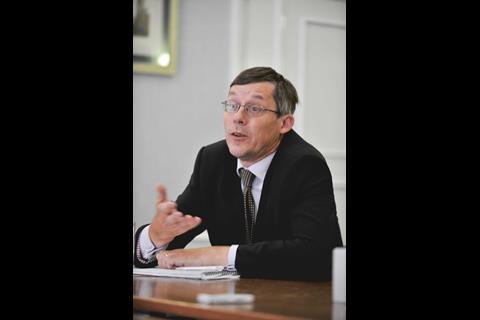


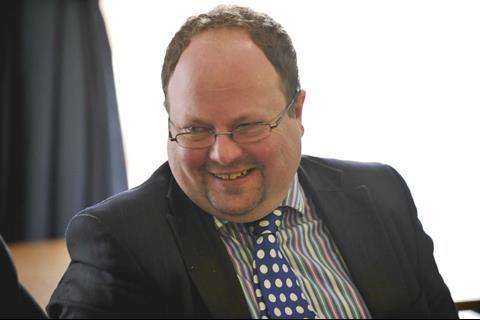

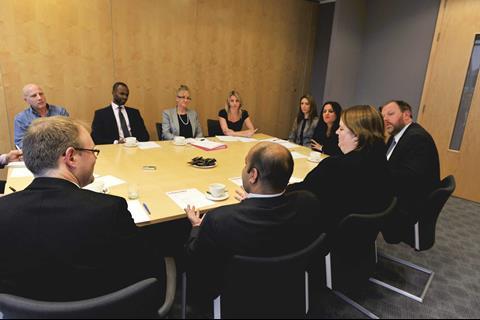


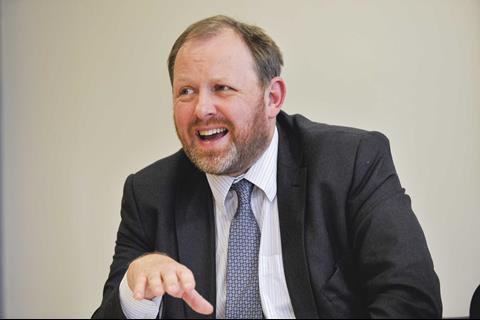
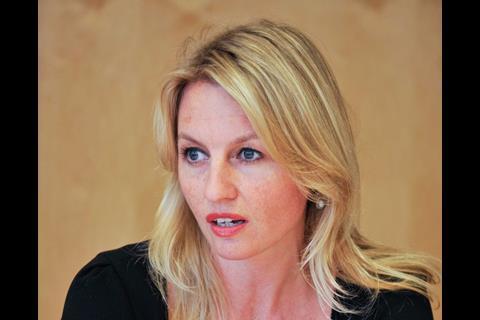
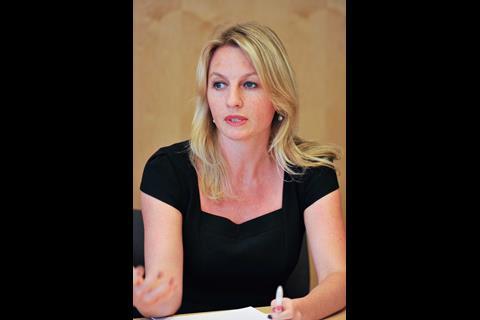
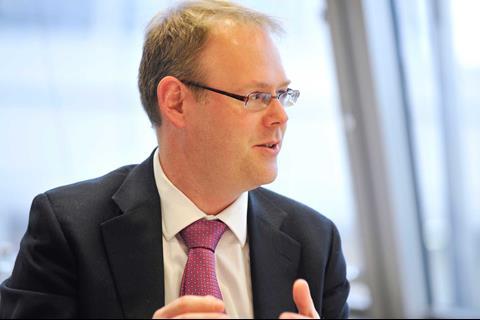
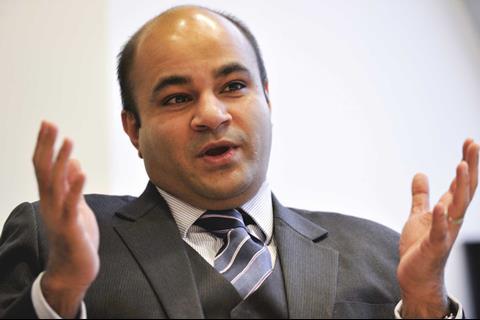
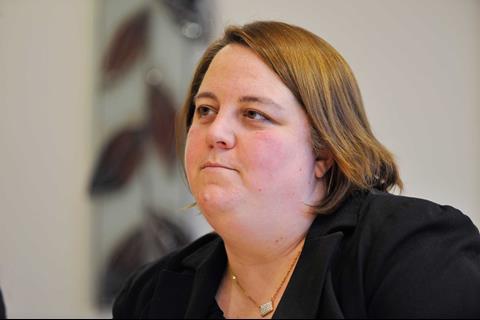








1 Reader's comment